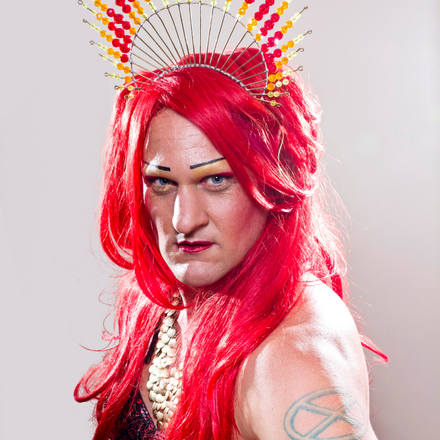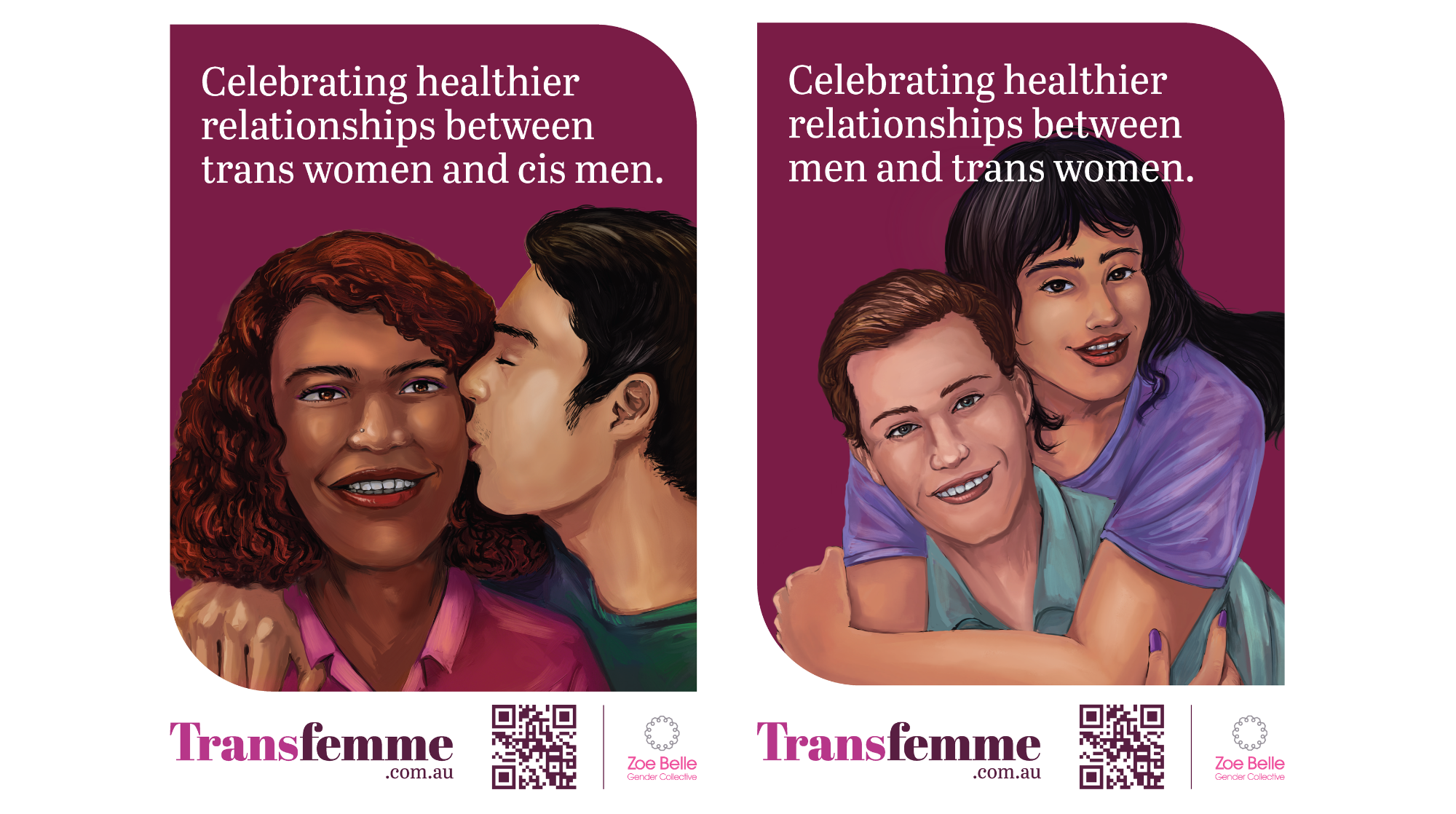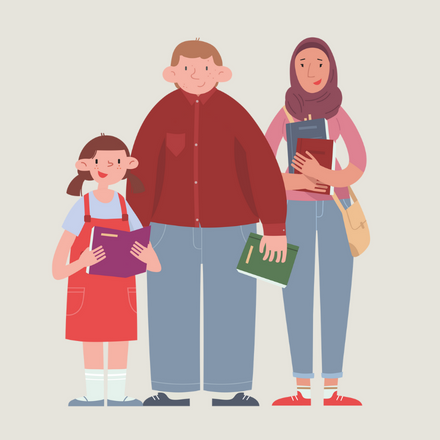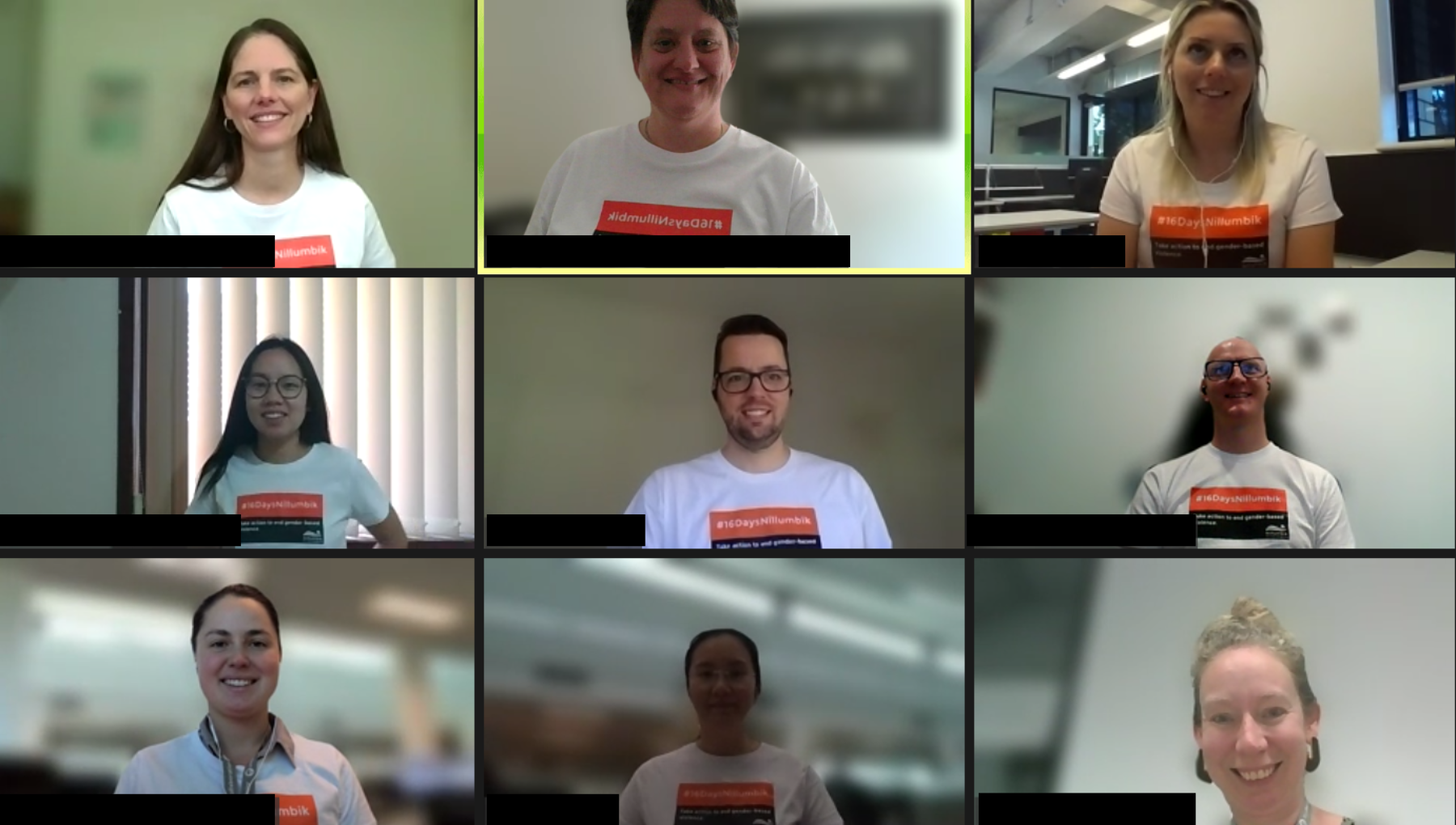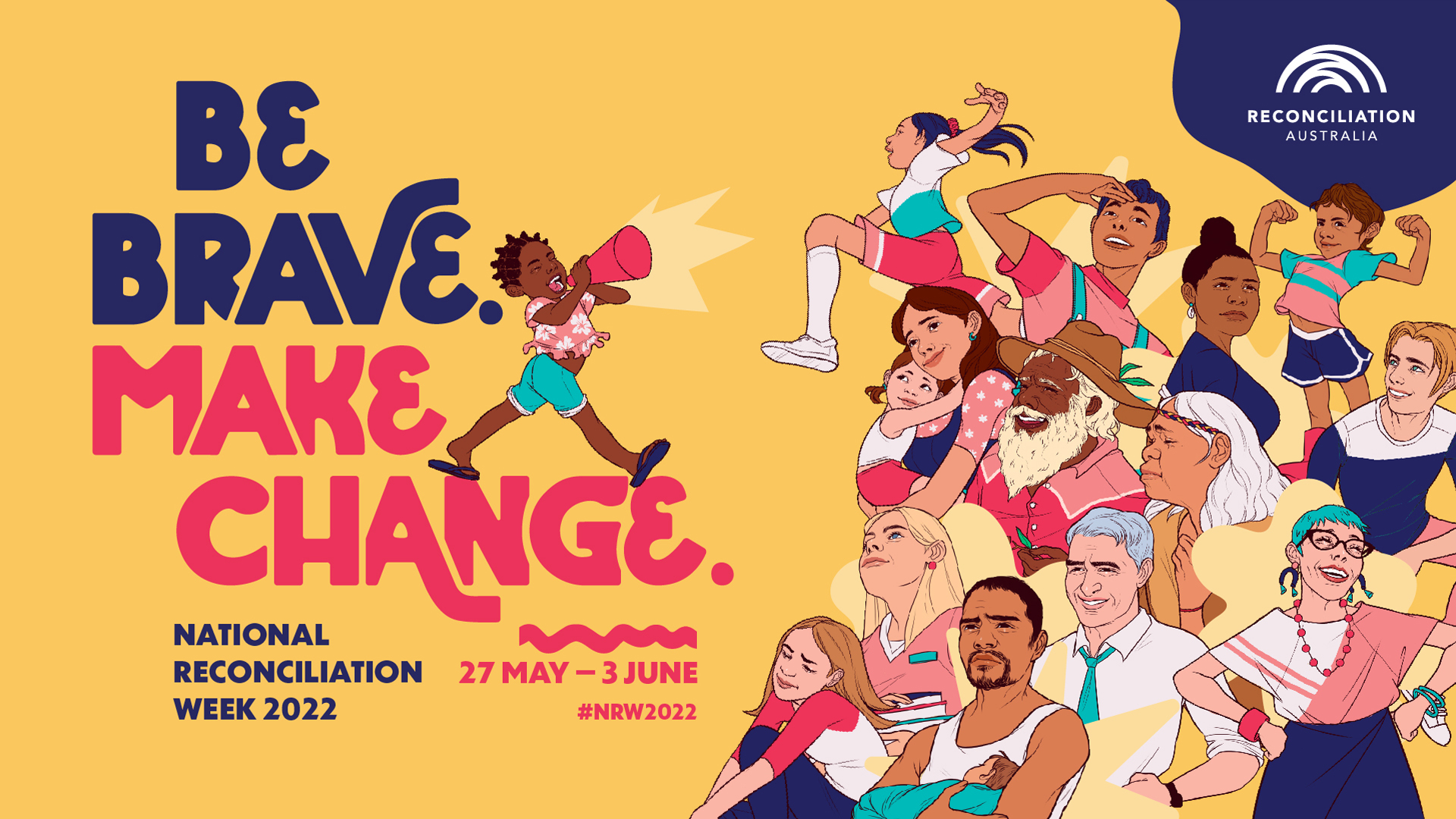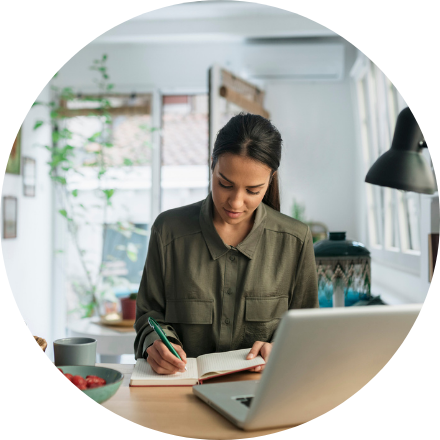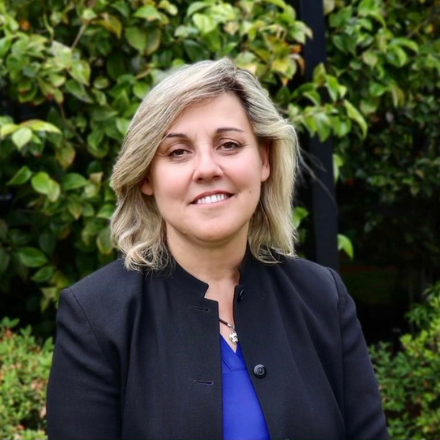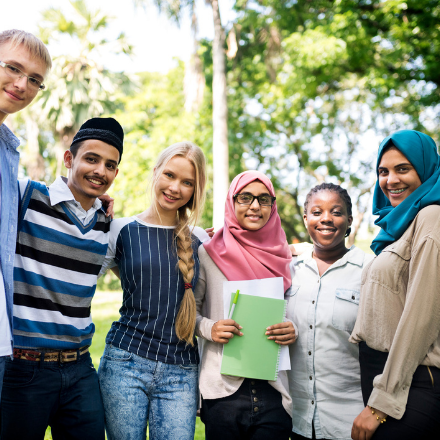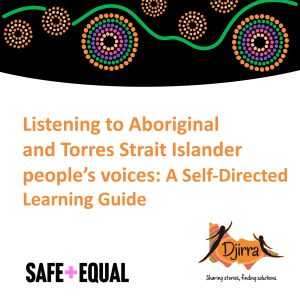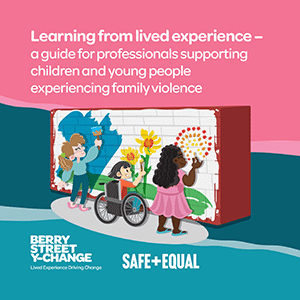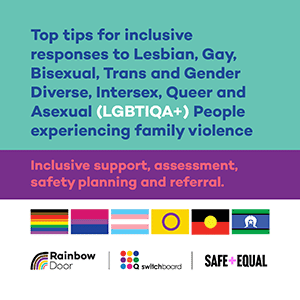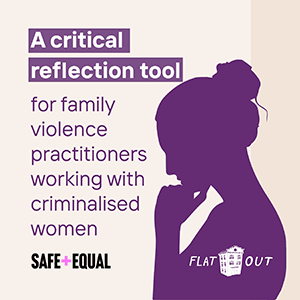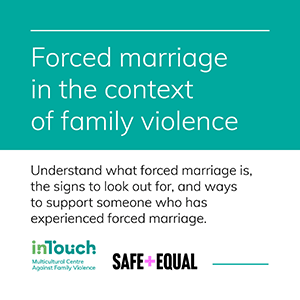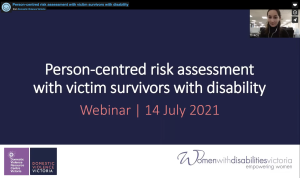Safe and Equal’s Member Forum was held both in person (for the first time in three years!) and virtually across two jam-packed days, from 27-28 September 2022.
The Member Forum is an annual opportunity for our sector to come together and consider ‘where to from here?’ – to step back, reflect, listen, and set the vision we want to see for the future of our sector. This year’s forum gave members the chance to centre lived experience and co-production approaches as we explored key priorities for the next 12 months and beyond.
Day One
Tuesday 27 September
Following an opening address from the Minister for the Prevention of Family Violence Ros Spence, we were joined by Commissioner Sue-Anne Hunter, Dr Simone Gristwood and Commissioner Meena Singh for a frank and deeply engaging conversation on how we can better centre First Nations women’s voices in mainstream family violence services.
“Every single Aboriginal woman who has died at the hands of violence deserves to have her name heard.”
– Commissioner Sue-Anne Hunter
The panel discussion focused on four interconnected themes: cultural safety, self-determination, power shifting and sharing, and allyship. Panellists spoke to the importance of understanding more broadly the lack of cultural safety experienced by Aboriginal people in Australia, and how acknowledging the power non-Aboriginal people hold in all systems and spaces is key to shifting power imbalances.
Of particular significance was the panel’s discussion of the term ‘vulnerability,’ and that the vulnerability and risk experienced by Aboriginal women is a product of being excluded and marginalised by the broader white Australian system. This system and our roles within it must be deeply understood and acknowledged in order to be challenged and dismantled.
“Being an ally means sitting with the discomfort, sitting in the silence, reflecting and thinking why you want to be in this space…we don’t need white saviours, we need people to give up space for us.”
– Commissioner Meena Singh
The powerful conversations that arose from this session carried us into the first in-person workshop, where we heard from members about the changes we can make as individuals or within our organisations to support tangible shifts in the way we approach cultural safety, self-determination and allyship with First Nations people.
Some key feedback that emerged from these discussions included:
- Challenging the way we prioritise white knowledge; for example, Rec 209
- Avoiding performative or habitual actions; taking the time to explore deeper learning and understanding
- Increasing resources in this space – investing time and money
- Challenging racist structures within the workplace; for example, observing January 26 as a day of mourning with the option to work on that day
- Shifting power by eliminating pre-determined ideas of outcomes or what an interaction might look like.
These and other learnings generated from these foundational discussions will inform the peak’s ongoing advocacy agenda, as well as our partnership with Djirra.
In the afternoon, the focus shifted to workforce sustainability. The first panel discussion was led by Safe and Equal CEO Tania Farha on how we can retain expertise and continually build the capacity of our workforce in an ever-changing reform environment.
Panellists Emma Catford, Emma King and Camille Kingston discussed the difficulties the specialist family violence workforce has faced, particularly following the pandemic. With low unemployment rates and competition for workers across the broader community sector, the challenge lies in maintaining a steady flow of people entering the specialist family violence workforce, as well as enhancing the capabilities of those who are already working within it.
Despite these challenges, there is work being done in this space to strengthen our workforce. The panel spoke to several programs and campaigns led by government, including the Jobs Guarantee Program and the Jobs That Matter campaign. Panellists also discussed the importance of data, and using an evidence base to understand the workforce needs.
This was followed by a workshop led by Safe and Equal’s Sector Development Unit, who facilitated a member-guided conversation on workforce challenges and ideas for future-focused solutions. Feedback included issues around pay and conditions, as well as trying to encourage school-leavers to engage in tertiary social work studies. Opportunities for solutions discussed by members included sector-wide graduate programs, paid internships, and leadership training.
Day Two
Wednesday 28 September
Data was the focus throughout the morning of day two, with presentations on both the Measuring Family Violence Services Demand Project and Safe and Equal’s draft Client Outcomes Framework.
We heard from member services and survivor advocates as part of a panel discussion on the significance of both projects. Key themes included the incredible significance of data as a whole-of-picture story and a way to shift the conversation from a focus on outputs to outcomes, as well as the importance of collecting feedback from the often-invisible voices of children and young people.
“There’s a real person behind data points. It’s not just data – these are people.”
– Mishka*, Survivor Advocate
Following this, attendees engaged in several roundtable discussions focused on next steps in delivering a client outcomes measurement framework. Some of the feedback from these conversations included the importance of testing the framework with diverse voices including LGBTIQA+ service users, remunerating victim survivors for their time and expertise, and ensuring the framework can be implemented by services under considerable strain and demand.
After lunch we were joined by Joe Ball and Libby Jamieson from Switchboard to discuss trans and gender diverse inclusion in family violence services. Joe and Libby gave a powerful presentation on the journey of inclusion, with Joe referring to it as “a joint project for our bodies, our lives and our rights to decide.”
“How are you signalling your commitment to inclusion in the community, so people will come?”
– Joe Ball
Following their presentation, four questions were provided for group discussion, with key feedback from members including:
- Shifting language traditionally used in the sector; i.e. ‘women’s refuge’
- Advocating for increased funding to address inclusivity, but also looking at what can be done in the current environment
- The need for increased demand data for LGBTIQA+ communities
- Ensuring the fear of ‘getting it perfect’ doesn’t stop us from trying, as doing nothing has significant consequences for those experiencing violence who need support.
“If services aren’t safe, people won’t look to the specialist family violence sector for a response.”
– Libby Jamieson
We finished the day exploring how work in the response sector can be amplified and supported by prevention efforts, featuring a conversation with Respect Vic CEO Emily Maguire and followed by roundtable discussions. These conversations produced some fruitful feedback on how the response sector can forge a deeper understanding of the different types of prevention, the complexity of prevention work in the Orange Door model, and how education and training is key to allow practitioners to transition between sectors.
Virtual Sessions
In addition to the in-person presentations and workshops, a total of nine online sessions ran concurrently and were available to virtual attendees across both days of the forum. These sessions included:
- The Family Violence Media and Communications Network Meeting
- Case Management Program Requirements
- Managing Resistance to Gender Equality
- Key learnings from the 8th National Brain Injury Conference
- Safe and Equal Member Consultation
- Specialist Family Violence Sector Communities of Practice
- Rural and Regional Practitioner Session
- Health, Safety, and Wellbeing in the Family Violence Sector
- Introduction to Primary Prevention
As was acknowledged throughout the forum, the conversations generated from each session are ongoing, with all feedback informing future activity at Safe and Equal.
We’d like to say a huge thank you to all guest speakers and to everybody who attended both in-person and online, for sharing your expertise and enthusiasm. We hope you walked away from the forum feeling invigorated and excited for the future of our sector, and the potential for safer and more just outcomes for all victim survivors of family and gender-based violence. The 2023 Member Forum will be here before we know it, and we look forward to continuing these conversations and embarking upon new ones.
Page last updated Thursday, December 15 2022

